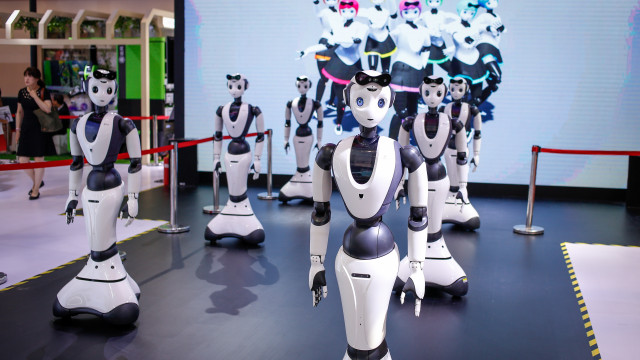A new study has found that when doing a task alongside a robot, people tend to get a little lazier — just as some workers take work more lightly when they know a hard-working colleague can get the job done for them.
The research, published in the journal Advances in Robotics and AI, suggests that this so-called "social idleness" is a sign that humans are finally seeing robots as their colleagues, for better or for worse.
"Teamwork is a mixed blessing," said Dietlind study co-author Helene Ziemek, a researcher at the Technical University of Berlin, in a statement about the work. "Working together can motivate people to perform well, but it can also lead to a loss of motivation because individual contributions are not as visible."
For the purpose of the experiment, the researchers told the participants to check images of circuit boards for manufacturing defects so that the researchers could accurately track their work.
One group was told that the boards had already been inspected by a robot. The second group was told they had only themselves to rely on.
It turns out that people working with the robot missed some defects and made significantly more mistakes, even though both groups spent about the same amount of time inspecting the boards.
Kathleen Richardson, professor of cultural ethics and artificial intelligence at De Montfort University in the UK, said the results were probably partly a symptom of robots being seen as colleagues rather than tools.
"This anthropomorphism is getting out of hand, frankly," Richardson, who was not involved in the research, told New Scientist. "I reject the idea that there is a collaborative process," she added.
"It just strikes me that workers are doing what they've always done, which is that in situations where they think a tool can do something, they let it do the work," Richardson said.
The researchers stressed that this kind of social idleness can be dangerous. The last thing you want, after all, is for someone whose job it is to check safety measures to be careless.
But Richardson suggests mismanagement may be the real culprit.
"I bet if there was an incentive behind it, and if people could get an extra bonus for spotting bugs in the chips, then they would put in a little bit more effort," she said.
Outside of the workplace, this unconscious phenomenon where our brains somehow go on autopilot when a robot helps us with a task can be seen in the realm of self-driving cars.
In whatever field new technologies are used, it pays to be careful when it comes to automating important tasks. /BGNES







